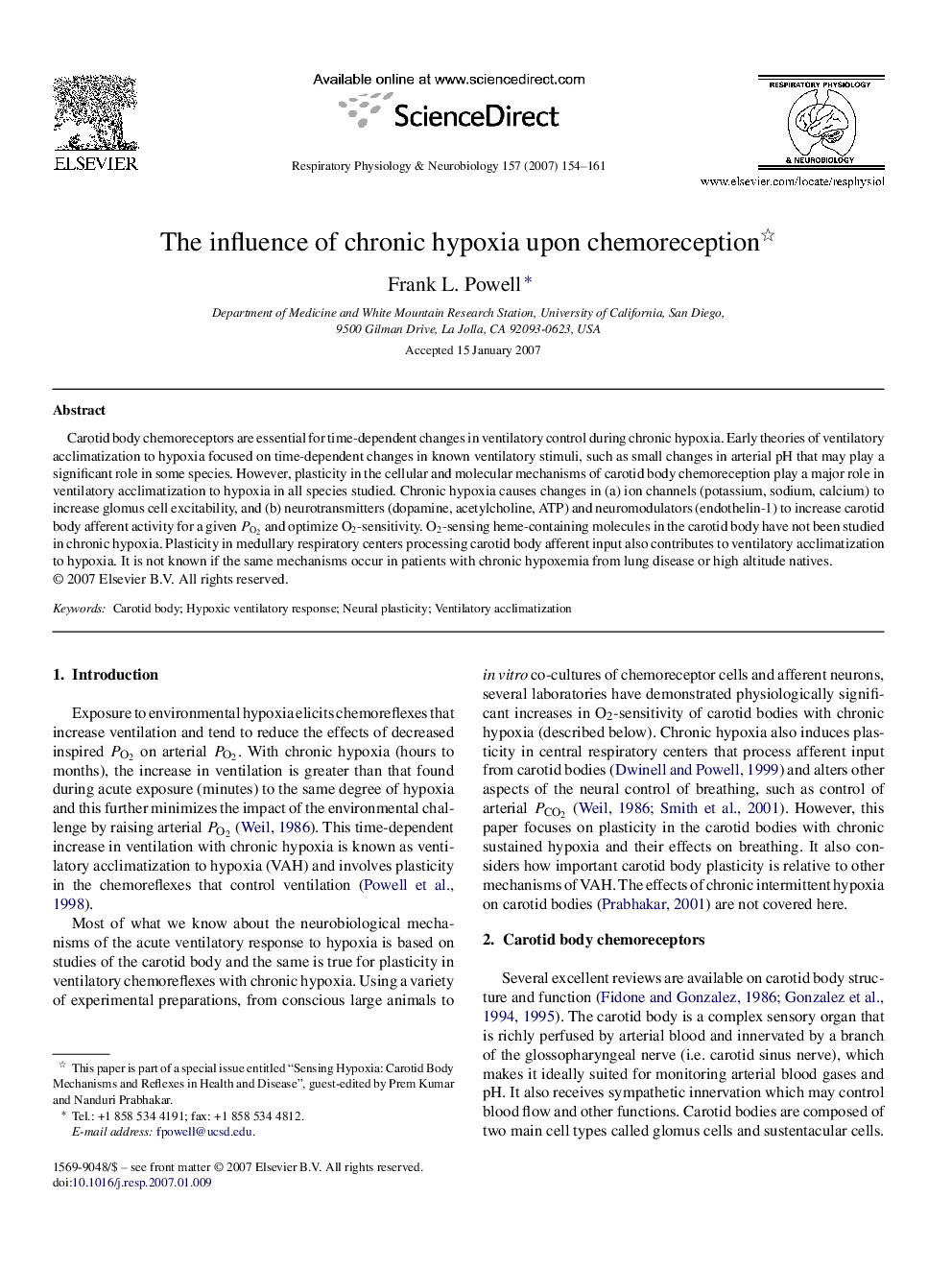| Article ID | Journal | Published Year | Pages | File Type |
|---|---|---|---|---|
| 2848480 | Respiratory Physiology & Neurobiology | 2007 | 8 Pages |
Carotid body chemoreceptors are essential for time-dependent changes in ventilatory control during chronic hypoxia. Early theories of ventilatory acclimatization to hypoxia focused on time-dependent changes in known ventilatory stimuli, such as small changes in arterial pH that may play a significant role in some species. However, plasticity in the cellular and molecular mechanisms of carotid body chemoreception play a major role in ventilatory acclimatization to hypoxia in all species studied. Chronic hypoxia causes changes in (a) ion channels (potassium, sodium, calcium) to increase glomus cell excitability, and (b) neurotransmitters (dopamine, acetylcholine, ATP) and neuromodulators (endothelin-1) to increase carotid body afferent activity for a given PO2PO2 and optimize O2-sensitivity. O2-sensing heme-containing molecules in the carotid body have not been studied in chronic hypoxia. Plasticity in medullary respiratory centers processing carotid body afferent input also contributes to ventilatory acclimatization to hypoxia. It is not known if the same mechanisms occur in patients with chronic hypoxemia from lung disease or high altitude natives.
